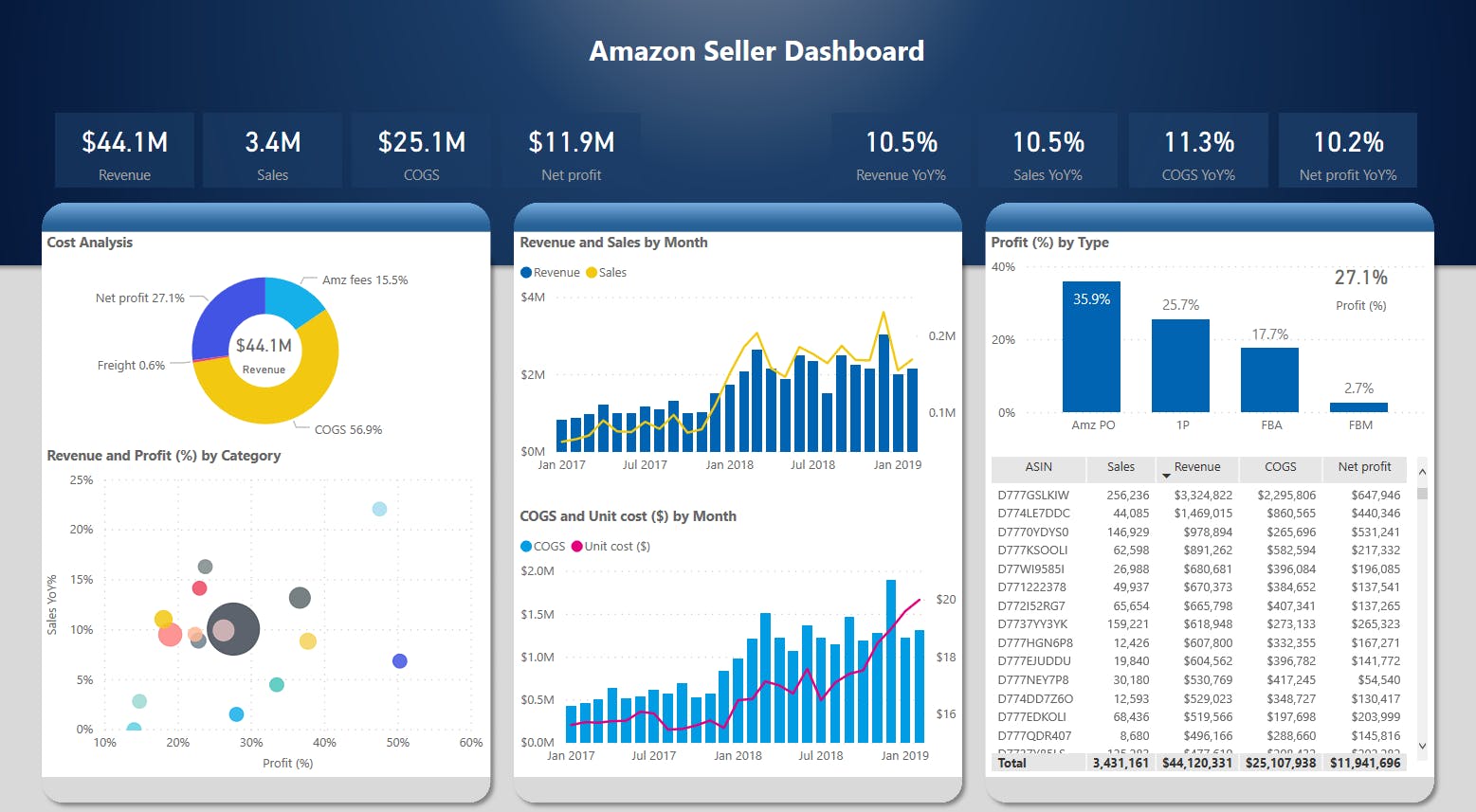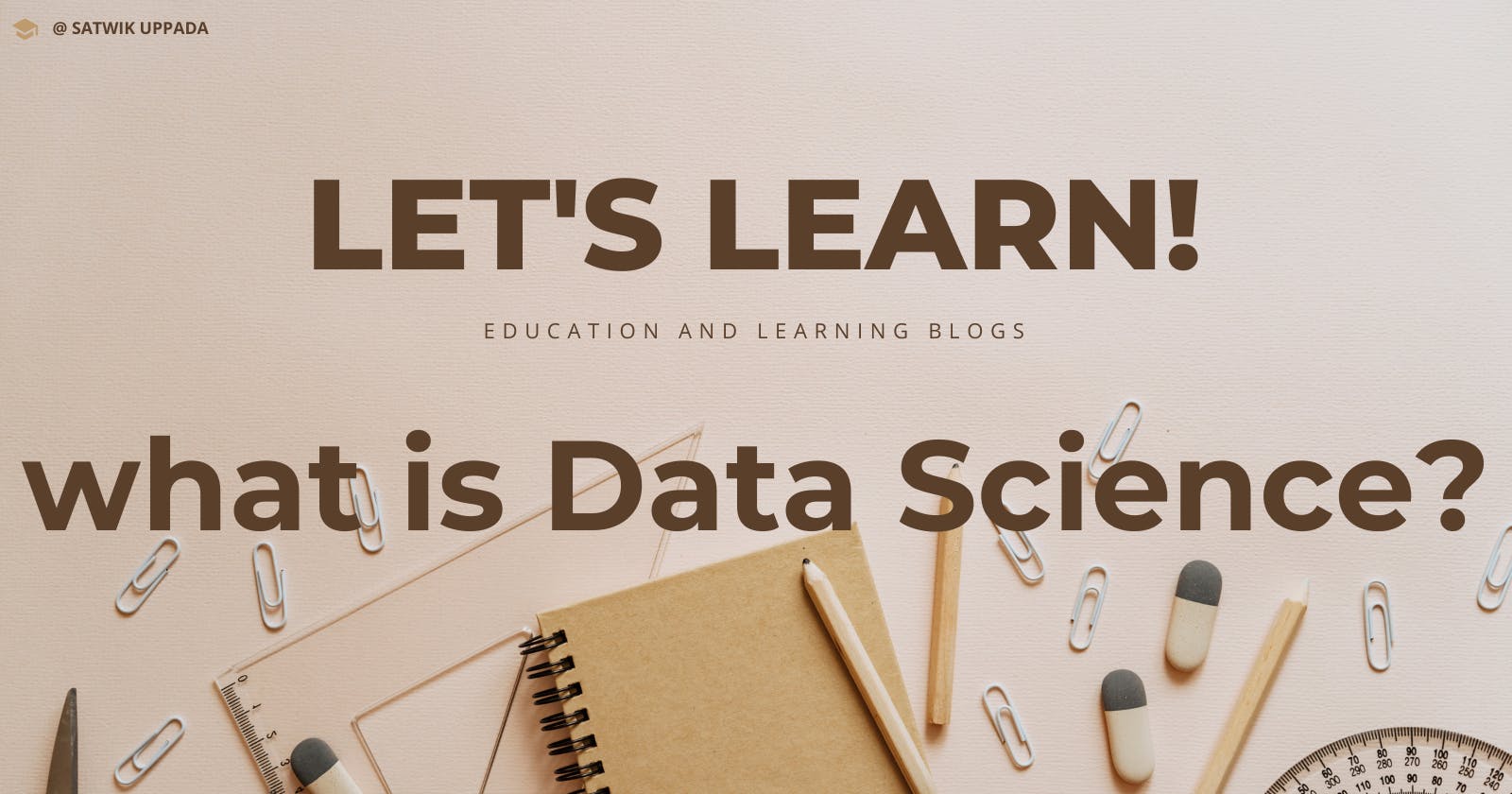"Have you ever wondered how massive amounts of data can reveal hidden patterns, predict trends, and shape the future? If so, you're about to embark on a journey into the captivating world of data science. So, what exactly is data science, and how does it unravel the mysteries locked within the numbers?"
Let's start with a definition...
What is Data Science?
"Data science is a multidisciplinary study focused on extracting meaningful insights from data to benefit businesses. It merges principles from mathematics, statistics, artificial intelligence, and computer engineering to analyze substantial datasets. Through this analysis, data scientists can investigate questions such as what occurred, why it did, what's likely to happen next, and how the results can be utilized."
Example:
Imagine you're a student, Your report card, filled with marks from different subjects, is like a treasure trove of data. Now, picture your parents and teachers as data scientists. They aren't just glancing at the numbers; they're diving deep, hunting for insights that guide your educational journey.
Just as they identify your strengths and weaknesses, real-world data scientists do the same for companies. Instead of marks, they sift through a treasure trove of sales data, customer preferences, and market trends. Just as your parents might suggest focusing on math because you excel in it, data scientists recommend boosting certain products because they're flying off the shelves.
Now, think about this: With a focused study plan, you improve your grades. Similarly, with data-driven strategies, companies improve their profits.

Your path to academic success mirrors a company's path to business success. As you thrive with a smarter approach to studying, companies flourish with smarter strategies based on data.
In the end, whether it's acing exams or thriving in the market, data science is the guiding light that uncovers hidden potential and shapes the road to success.
Why Data Science is So Important in Today's World?
Let me explain using a scenario you're probably familiar with:
the Amazon shopping app. Have you ever wondered why it asks you to rate products and deliveries? That's because Amazon, like many other companies, is all about data.
Think about it—every time you browse, search, and shop on Amazon, you're generating data. They know what you like, what you're looking for, and what you've bought. Now, let's break it down.
Imagine you've been eyeing that shiny new phone. Amazon remembers. It's not just watching; it's collecting data. Using this data, Amazon's clever algorithms suggest other products you might love. It's like a virtual personal shopper!
Ever notice how the reviews you leave impact your future recommendations? That's the magic of data science. By analyzing your reviews and others', Amazon can tell if something's fishy. It's their way of keeping things honest and ensuring quality.
But wait, there's more. Amazon knows which products are flying off the shelves and which ones aren't. They're not psychic, they're just data-smart. With this information, they decide what to promote, what to stock up on, and where to focus their marketing efforts.

And Amazon is not alone. Almost every company today is hungry for data. They're like data archaeologists, digging into past behaviors to uncover future trends. From healthcare to entertainment, data science is the compass guiding companies toward success.
So, why is data science so important? Because it turns our actions into insights. It's the wizard behind the curtain that makes your shopping experience better, keeps things fair, and helps companies thrive in this fast-paced world.
Learning Path of my Journey in this field
I'm proudly navigating the world of data science as a student, currently in the 5th semester of my Bachelor of Technology in Computer Science and Engineering. With a specialization in data science and AI & ML, my journey is all about unearthing the wonders of this fascinating field.
Here's a snapshot of my journey thus far:
Starting with the Basics: I started by laying a strong foundation. My journey began with diving into the basics, from understanding Excel's magic in organizing data to realizing its potential in handling real-world datasets.
Python: Next up was the incredible world of Python. It's not just a programming language; it's the key to unlocking the doors of data science. With Python, I could seamlessly manipulate, analyze, and visualize data.
Masters of Libraries: My toolkit expanded as I embraced essential libraries like Pandas, NumPy, matplotlib, and Seaborn, Tkinter. These tools transformed my data into insights, letting me explore patterns and tell meaningful stories.
Projects That Teach: Practicality is the best teacher. Through projects, I delved into datasets, applying Python and libraries to breathe life into them. Visualization became a way to communicate and analyze.
Exploratory Data Analysis (EDA): This semester, my focus has shifted to Exploratory Data Analysis (EDA). I'm in the midst of understanding how data can be cleansed, transformed, and scrutinized to reveal hidden gems of insight. Here, I've even explored web scraping using Beautiful Soup, which allows me to gather valuable insights from the vast landscape of the internet
The SQL Story: My journey included delving into the world of SQL and RDBMS. Proficiency in PostgreSQL and MySQL means I can tackle data in various formats, paving the way for flexibility in real-world scenarios.
Visualizing Stories: The journey wasn't complete without a touch of visualization magic. Tools like Tableau and Power BI empowered me to create visual narratives that captivate and enlighten me.
Note:
As my journey continues, I'm eagerly diving into machine learning, advanced analytics, and the thrill of discovery. Each step fuels my passion for unraveling data's mysteries. Stay tuned as I share more insights and breakthroughs from the world of data science.
